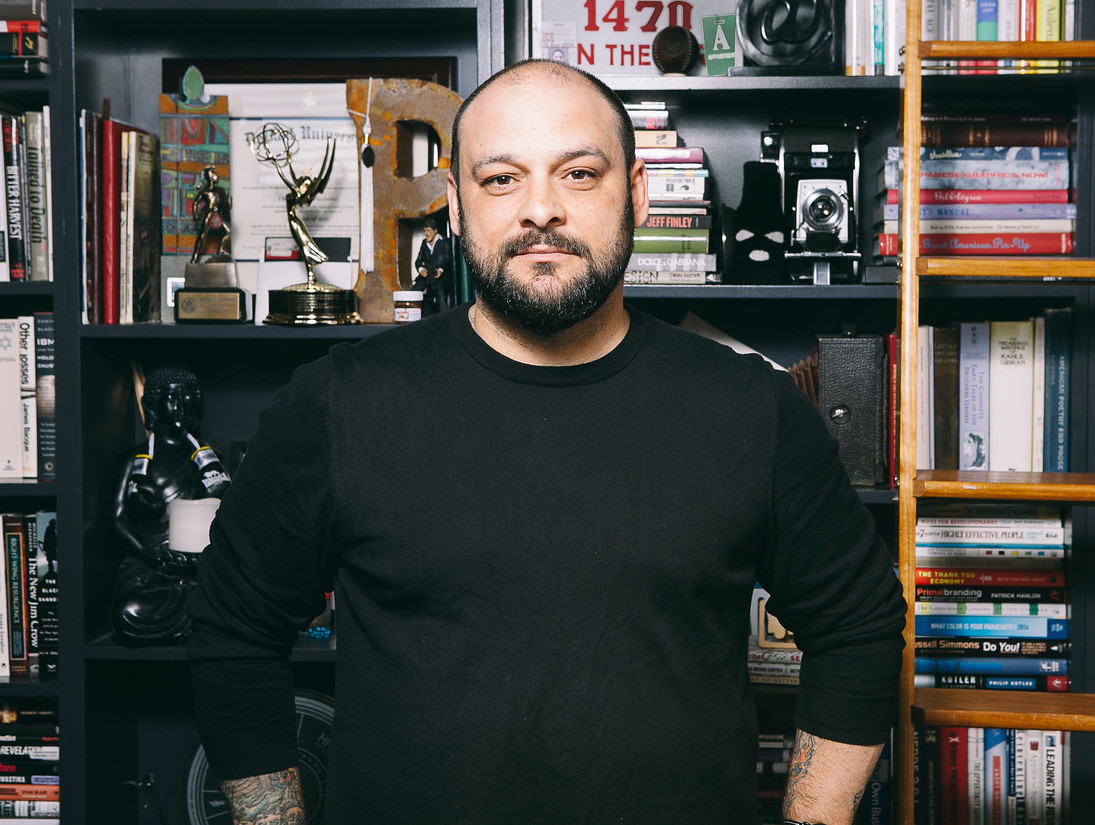Christian Picciolini, 14, was hanging out one day in an alley near the intersection of Union and Division streets in Chicago.
An older man with cropped hair and big shiny boots drove up.
He was warm and friendly, and he offered fatherly advice: Don’t smoke marijuana, he told Picciolini. “That’s what the Communists and Jews want you to do,” he said.
 He told Picciolini to be proud of his Roman warrior ancestors: They were a superior race, he said.
He told Picciolini to be proud of his Roman warrior ancestors: They were a superior race, he said.
The man was Clark Martell, a violent neo-Nazi who was later sentenced to prison for assault and robbery.
But Picciolini was hungry for attention and he saw Martell as heroic.
“I was a really easy sell when somebody came and told me I was important,” Picciolin said in a presentation in January at Chicago’s Wilmette Public Library.
Picciolini joined Martell’s white nationalist group and eventually led the Chicago Area Skinheads (CASH). He became a musician in the Chicago punk rock scene playing music that glorified white power.
For eight years, he believed the lies, he said later in a TEDx talk. He blamed the world’s problems on Blacks, Jews and immigrants. He beat up people, stockpiled weapons and expected a race war to break out any day.
‘Turn off the bigot spigot’
Picciolini had been lonely and isolated as a young teen. His parents were Italian immigrants who worked long hours. In his book “White American Youth: My Descent into America's Most Violent Hate Movement — and How I Got Out,” he describes being mercilessly bullied at school when younger. He tasted power, however, when he finally beat up the bully in front of a large group of jeering kids.
He believes that if he’d been befriended by a baseball coach instead of a neo-Nazi, he would have become a baseball player, he said at the library event. Or if he’d been befriended by a ballerina, he would have become a dancer, he said. He was that hungry.
Now as an author and activist working against extremism, he runs a project to help others get extricated from extremism.
“Look for the isolated kids before they go down that path,” he urged. “Turn off the bigot spigot.”
Related Stories
When Hate Groups Recruit Youth: Teacher, Former White Nationalist Tell How to Counter It
Toolkit Can Help OST Workers Band Together to Respond To Hate Messages
In his book, Picciolini explains what led him out of the white power movement. He began to question his actions and ideology only when he fell in love with a young woman who wanted nothing to do with his skinhead group. The two married, and their first child was born when he was 19. Becoming a father made him question what kind of person he wanted to be. He began to rethink his identity and purpose.
He still spent little time at home with his family, which grew to include two children.
When his wife divorced him, he sank into depression. At the same time, he saw his younger brother following the same lawless path he’d taken. Then his brother was killed in a street shooting.
Another turning point came when he got a job that better engaged his abilities. He also entered DePaul University, which opened up a new world to him. But the most critical event occurred when he ran into Johnny Holmes, the former chief of security at Picciolini’s high school. As a student, Piccolini had gotten into a fistfight and hurled racist insults at him. This time, he did something different. Sweating and trembling, he approached Holmes and apologized.
Holmes’ forgiveness encouraged Picciolini to forgive himself. The two have recorded a StoryCorps conversation about the experience.
Picciolini said he received compassion when he didn’t deserve it. After that “I knew it was on me,” he said.
“I came to address the past because it was the right thing to do,” he said at the library event. He believes that people have to undo the damage they have caused.
“Redemption without accountability is simply privilege,” he said.
